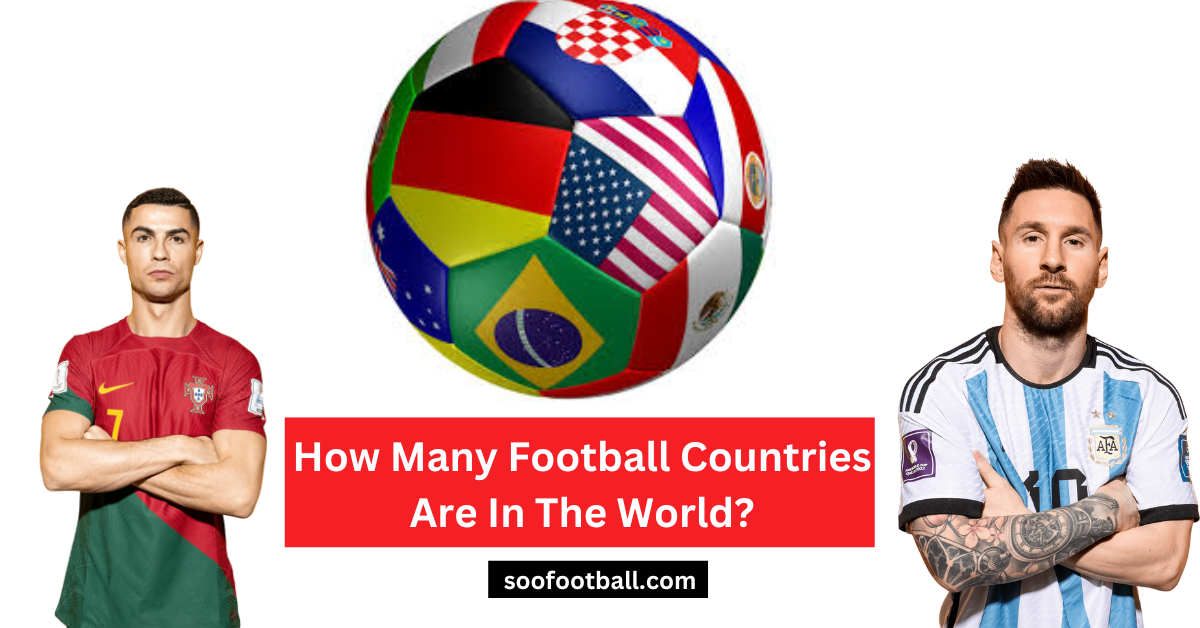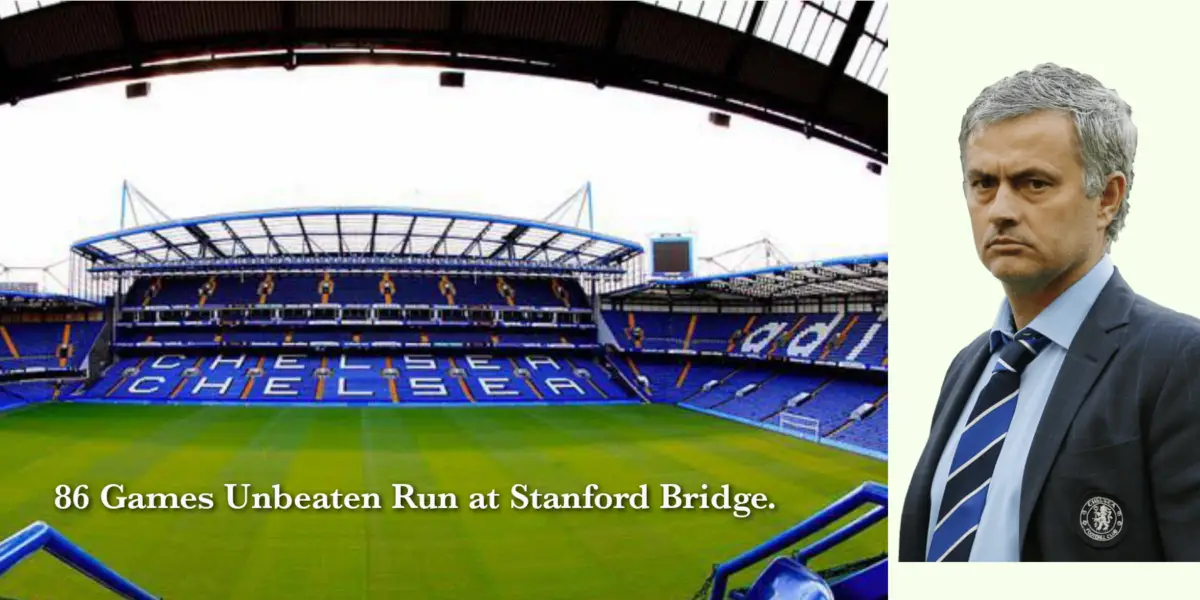According to the UN, there are 193 member countries. But in football, FIFA recognizes 211 ‘national teams’. How is this possible? We should find out indeed how many football countries are in the world. In other words, let’s find out the FIFA-recognized countries and then see how it differs from the UN’s.
Now let’s into details before arriving at the right conclusion.
How The UN Recognizes A Nation
According to the official UN website, there are 193 member states.
So, from the UN’s point of view, there are 193 nations or countries.
FIFA-recognized Countries
FIFA recognizes 211 countries instead of the UN’s 193.
For clarity, please see below a list of the 211 FIFA-recognized countries.
| SN | FIFA-recognized Countries |
|---|---|
| 1 | Afghanistan |
| 2 | Albania |
| 3 | Algeria |
| 4 | American Samoa |
| 5 | Andorra |
| 6 | Angola |
| 7 | Anguilla |
| 8 | Antigua and Barbuda |
| 9 | Argentina |
| 10 | Armenia |
| 11 | Aruba |
| 12 | Australia |
| 13 | Austria |
| 14 | Azerbaijan |
| 15 | Bahamas |
| 16 | Bahrain |
| 17 | Bangladesh |
| 18 | Barbados |
| 19 | Belarus |
| 20 | Belgium |
| 21 | Belize |
| 22 | Benin |
| 23 | Bermuda |
| 24 | Bhutan |
| 25 | Bolivia |
| 26 | Bosnia and Herzegovina |
| 27 | Botswana |
| 28 | Brazil |
| 29 | British Virgin Islands |
| 30 | Brunei Darussalam |
| 31 | Bulgaria |
| 32 | Burkina Faso |
| 33 | Burundi |
| 34 | Cabo Verde |
| 35 | Cambodia |
| 36 | Cameroon |
| 37 | Canada |
| 38 | Cayman Islands |
| 39 | Central African Republic |
| 40 | Chad |
| 41 | Chile |
| 42 | China PR |
| 43 | Chinese Taipei |
| 44 | Colombia |
| 45 | Comoros |
| 46 | Congo |
| 47 | Congo DR |
| 48 | Cook Islands |
| 49 | Costa Rica |
| 50 | Côte d’Ivoire |
| 51 | Croatia |
| 52 | Cuba |
| 53 | Curaçao |
| 54 | Cyprus |
| 55 | Czechia |
| 56 | Denmark |
| 57 | Djibouti |
| 58 | Dominica |
| 59 | Dominican Republic |
| 60 | Ecuador |
| 61 | Egypt |
| 62 | El Salvador |
| 63 | England |
| 64 | Equatorial Guinea |
| 65 | Eritrea |
| 66 | Estonia |
| 67 | Eswatini |
| 68 | Ethiopia |
| 69 | Faroe Islands |
| 70 | Fiji |
| 71 | Finland |
| 72 | France |
| 73 | Gabon |
| 74 | Georgia |
| 75 | Germany |
| 76 | Ghana |
| 77 | Gibraltar |
| 78 | Greece |
| 79 | Grenada |
| 80 | Guam |
| 81 | Guatemala |
| 82 | Guinea |
| 83 | Guinea-Bissau |
| 84 | Guyana |
| 85 | Haiti |
| 86 | Honduras |
| 87 | Hong Kong |
| 88 | Hungary |
| 89 | Iceland |
| 90 | India |
| 91 | Indonesia |
| 92 | IR Iran |
| 93 | Iraq |
| 94 | Israel |
| 95 | Italy |
| 96 | Jamaica |
| 97 | Japan |
| 98 | Jordan |
| 99 | Kazakhstan |
| 100 | Kenya |
| 101 | Korea DPR |
| 102 | Korea Republic |
| 103 | Kosovo |
| 104 | Kuwait |
| 105 | Kyrgyz Republic |
| 106 | Laos |
| 107 | Latvia |
| 108 | Lebanon |
| 109 | Lesotho |
| 110 | Liberia |
| 111 | Libya |
| 112 | Liechtenstein |
| 113 | Lithuania |
| 114 | Luxembourg |
| 115 | Macau |
| 116 | Madagascar |
| 117 | Malawi |
| 118 | Malaysia |
| 119 | Maldives |
| 120 | Mali |
| 121 | Malta |
| 122 | Mauritania |
| 123 | Mauritius |
| 124 | Mexico |
| 125 | Moldova |
| 126 | Mongolia |
| 127 | Montenegro |
| 128 | Montserrat |
| 129 | Morocco |
| 130 | Mozambique |
| 131 | Myanmar |
| 132 | Namibia |
| 133 | Nepal |
| 134 | Netherlands |
| 135 | New Caledonia |
| 136 | New Zealand |
| 137 | Nicaragua |
| 138 | Niger |
| 139 | Nigeria |
| 140 | North Macedonia |
| 141 | Northern Ireland |
| 142 | Norway |
| 143 | Oman |
| 144 | Pakistan |
| 145 | Palestine |
| 146 | Panama |
| 147 | Papua New Guinea |
| 148 | Paraguay |
| 149 | Peru |
| 150 | Philippines |
| 151 | Poland |
| 152 | Portugal |
| 153 | Puerto Rico |
| 154 | Qatar |
| 155 | Republic of Ireland |
| 156 | Romania |
| 157 | Russia |
| 158 | Rwanda |
| 159 | Samoa |
| 160 | San Marino |
| 161 | São Tomé and Príncipe |
| 162 | Saudi Arabia |
| 163 | Scotland |
| 164 | Senegal |
| 165 | Serbia |
| 166 | Seychelles |
| 167 | Sierra Leone |
| 168 | Singapore |
| 169 | Slovakia |
| 170 | Slovenia |
| 171 | Solomon Islands |
| 172 | Somalia |
| 173 | South Africa |
| 174 | South Sudan |
| 175 | Spain |
| 176 | Sri Lanka |
| 177 | St Kitts and Nevis |
| 178 | St Lucia |
| 179 | St Vincent and the Grenadines |
| 180 | Sudan |
| 181 | Suriname |
| 182 | Sweden |
| 183 | Switzerland |
| 184 | Syria |
| 185 | Tahiti |
| 186 | Tajikistan |
| 187 | Tanzania |
| 188 | Thailand |
| 189 | The Gambia |
| 190 | Timor-Leste |
| 191 | Togo |
| 192 | Tonga |
| 193 | Trinidad and Tobago |
| 194 | Tunisia |
| 195 | Türkiye |
| 196 | Turkmenistan |
| 197 | Turks and Caicos Islands |
| 198 | Uganda |
| 199 | Ukraine |
| 200 | United Arab Emirates |
| 201 | Uruguay |
| 202 | US Virgin Islands |
| 203 | USA |
| 204 | Uzbekistan |
| 205 | Vanuatu |
| 206 | Venezuela |
| 207 | Vietnam |
| 208 | Wales |
| 209 | Yemen |
| 210 | Zambia |
| 211 | Zimbabwe |
Why Does FIFA Recognize 211 Football Associations Instead Of the UN’s 193?
To start with, it is important to understand what FIFA is about.
FIFA stands for Fédération Internationale de Football Association. This acronym is derived from a French origin that means the international governing body of Association Football.
The major function of FIFA is “to govern football and to develop the game around the world”.
By carrying out their duty, FIFA works with Football Associations instead of “countries”.
On paper, FIFA recognizes 211 Football Associations.

In essence, the reason why FIFA recognizes more than the UN’s 193 nations is that FIFA works with Football Associations instead of “countries”.
Football Association vs Country: What’s The Difference?
From FIFA’s perspective, an FA (or Football Association in full) is a football ruling body for a particular nation. To be clear, FIFA identifies a nation through a recognized FA.
On the other hand, a country in its literal term means a nation as recognized politically by the United Nations (UN).
The major difference between an FA and “country” is that FA is more specific about a region but “country” may not be quite specific.
For instance, the UN recognizes the UK as just 1 “nation”. Meanwhile, FIFA recognizes England, Wales, Northern Ireland, and Scotland as individual and separate nations because they each have an independent FA that FIFA recognizes.
Another good example is Denmark and Faroe Islands. The Faroe Islands is actually a small territory under Denmark.
The UN recognizes only Denmark as a “nation” but not the Faroe Islands.
FIFA, on the other hand, recognizes both Denmark and the Faroe Islands as individual and independent nations because each of them has an FA.
Learn More: Why Football Is The Most Popular Sports
Conclusion
To be clear, there are 211 football countries recognized by FIFA. See the table above for the complete list.
The International Olympics committee recognizes 206 nations to participate in the Olympics and the UN recognizes 195 nations.
A “nation” don’t need to be an officially recognized country to have a Football Association recognized by FIFA. Non-recognized ‘national’ teams include:
- The four home nations in the UK (England, Scotland, Wales, and Northern Ireland).
- Various dependent territories (for example Gibraltar, Bermuda, Faroe Islands, etc.).
- Non-recognized (or partially recognized) autonomous states (Kosovo, Moldova, etc.).
It is also important to mention that there are many “countries” that are not recognized by FIFA at all.
These countries hold their separate ‘World Cup‘ different from FIFA’s and they call it CONIFA World Cup.
Further Reading:





